Books
Brain Bats of Venus
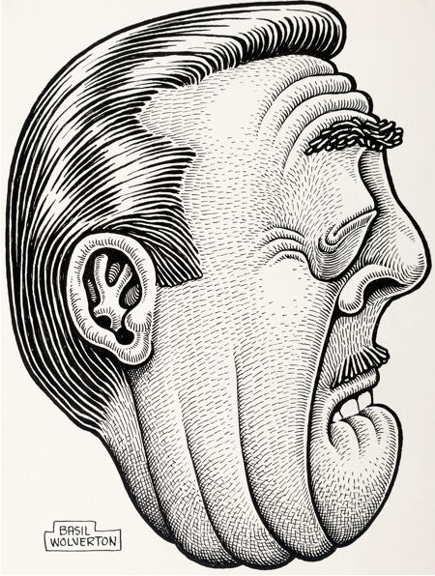
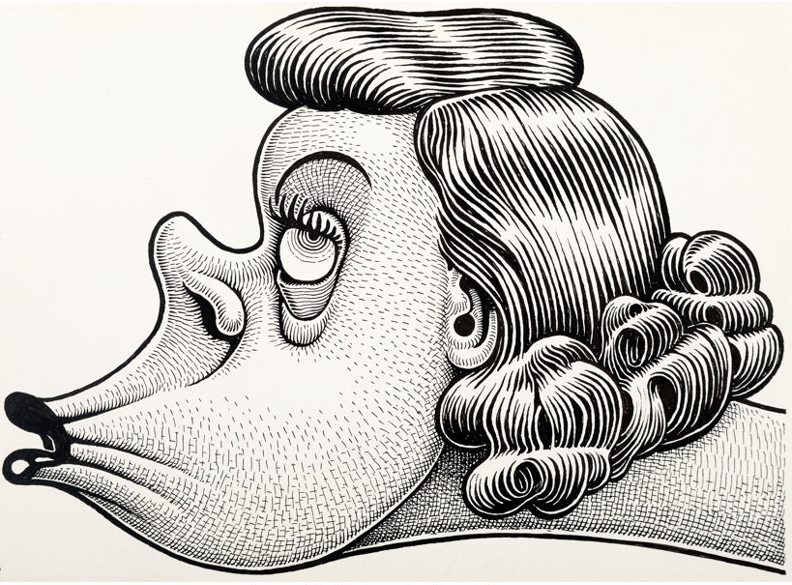
Just out is the second volume chronicling the improbable career of one of the chief Weirdo artists of all time, Basil Wolverton. Required reading for all WU-vies--and a great gift idea!
Posted By: Paul - Thu Oct 31, 2019 -
Comments (0)
Category: Art, Surrealism, Eccentrics, Books, Twentieth Century
The Show Won’t Go On
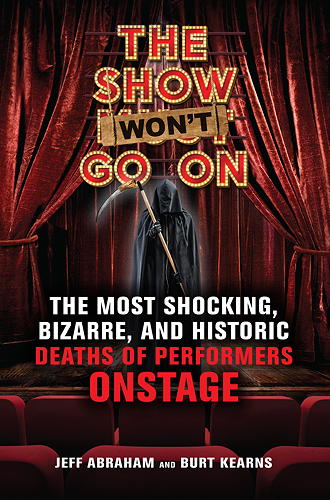
I haven’t read the book yet, but the topic sounds like it would be of interest to WUvies. It's described as the first comprehensive study of the phenomenon of performers who died onstage:
Amazon link.
The website for the book includes some examples of recent deaths while performing.


Posted By: Alex - Mon Sep 16, 2019 -
Comments (0)
Category: Death, Books
Psychedelic Apes - the book
Please excuse the self-promotion, though hopefully the subject matter may be of interest to WUvies. For the past two years I've been busy researching and writing another book, and it finally went on sale last week, published by Macmillan. I give you Psychedelic Apes: From parallel universes to atomic dinosaurs – the weirdest theories of science and history.
The book is an exploration of some of the craziest ideas that lurk at the fringes of both science and history. While I don't endorse these ideas, I didn't exactly set out to debunk them either. After all, I have a very high tolerance for, and fascination with, weirdness. Mostly I wanted to understand what the case was for each of them, and why some seemingly intelligent, knowledgeable researchers (quite a few of them leaders in their fields) not only convinced themselves that these ideas could be true, but in many cases passionately defended them — sometimes at great cost to their careers and reputations.
I also wanted to keep an open mind because the history of science is, to a great degree, a history of ideas that were initially dismissed by scholars as being totally nuts (such as heliocentrism, evolution, continental drift, etc.) eventually being accepted as true. But yes, I do explain why the majority of scholars reject the hypotheses I examine in the book.
The chapter list:
- What if the Big Bang never happened?
- What if our universe is actually a computer simulation?
- What if there’s only one electron in the universe?
- What if we’re living inside a black hole?
- What if we live forever?
- What if the Earth is at the centre of the universe?
- What if planets can explode?
- What if our solar system has two suns?
- What if ten million comets hit the Earth every year?
- What if the Earth is expanding?
- What if everything is conscious?
- What if diseases come from space?
- What if the Earth contains an inexhaustible supply of oil and gas?
- What if alien life exists on Earth?
- What if we’ve already found extraterrestrial life?
- What if the dinosaurs died in a nuclear war?
- What if our ancestors were aquatic apes?
- What if we’re descended from a pig–chimp hybrid?
- What if hallucinogenic drugs made us human?
- What if humanity is getting dumber?
- What if ancient humans were directed by hallucinations?
- What if Homer was a woman?
- What if Jesus was a mushroom?
- What if Jesus was Julius Caesar?
- What if the Early Middle Ages never happened?
The topics progress from cosmological questions about the origin and nature of the universe, up through the origin of life and our species, and ends with the dawn of the modern era. So in addition to being a catalog of "against-the-mainstream" ideas, the book offers a kind of alternative history of the cosmos. In the following weeks, I'll post fuller descriptions of some of these topics.
Unfortunately, the book is currently only on sale in the UK and (I believe) Australia. For whatever reason, the Brits have been much more receptive to my books than Americans have been. I have no idea if, or when, an American edition will be coming out. But an audio edition should be available soon. Some places it can be purchased online:
Amazon UK
W.H. Smith
Waterstones
If you're a blogger interested in obtaining a review copy, drop me a line. I may be able to arrange that. Though I can't make any promises.
Posted By: Alex - Thu Aug 01, 2019 -
Comments (6)
Category: Science, Books, Alex
Did Jesus Poop?
It's one of the more perplexing questions in Christian theology. A recent article in The Daily Beast explains why, over the centuries, the issue has kept rearing its head:There's also a book, published in 2018, with that title (amazon link). I have no idea of its quality (never having read it), but sometimes a title alone can be worth the price of purchase. For instance, the book sounds perfect to include among the reading material in a guest bathroom.

Posted By: Alex - Fri Jul 05, 2019 -
Comments (5)
Category: Religion, Books, Excrement
No Frills Books
In 1981, Jove Publishing debuted a “No Frills” series of books. This consisted of four books, each of which was supposed to represent a generic version of a genre (science fiction, western, mystery, and romance). Each book featured a generic cover, styled after the generic packaging for foods.And to complete their genericness, the names of the authors weren't revealed. But the Internet, of course, has subsequently tracked down who they were. As posted on Bill Crider's blog:
Mystery was written by Clark Dimond, a men's mag editor/writer who also wrote for comics.
The Romance was written by Judy Coyne (former Glamour mag editor) nee Wederholt
The SF was written by John Silbersack, SF editor and now an agent.
The Western was by Vic Milan (SF author)
We were working on a No-Frills Besteller (by me) and A No-Frills movie (by film critic David Ansen) when the series was dropped.
My partner selling the series was Lou Rosetto who went on to found WIRED magazine.

So what were the plots of these 'generic' novels? Here are some summaries I was able to find online:
Science Fiction (via Goodreads)
"A space cadet is called to the commander's office at the moon academy. His father is the lone known survivor of the Pluto colony, and asks for his son to join him in the search for what happened. They assemble a crew and blast off to Pluto, where they stumble upon few clues but several surprises."
Western (via Goodreads)
"It begins when Kid Smith arrives in town and almost immediately finds himself in a bar room brawl. He’s soon menaced by the town’s two factions. Those wearing black hats are led by a corrupt judge and those wearing white hats are led ….by a corrupt mayor. Both want their hands on the widow West’s land but Smith has taken a shine to her and vows to protect her and her property from the two no-good skunks and their henchmen."
Romance (via NY Times)
'''Romance' is complete with everything the cover claims - a kiss, a promise, a misunderstanding, another kiss, a happy ending -plus an alarming trial marriage condoned, nay, arranged by the Mother Superior of a Virginia hunt-country convent."
Mystery (via Bill Crider)
"The story itself is pure pulp, with corpses piling up at an amazing rate. The unnamed first-person private-eye narrator is given a mysterious cassette tape. Someone's killing to get it because although to the p. i. it sounds like a song, it has the power to cloud most men's minds. Most women's, too. Whoever has the tape can control the world."
Posted By: Alex - Mon Jun 10, 2019 -
Comments (2)
Category: Literature, Books, 1980s
Frozen Sections of a Child
Back in 1881, Dr. Thomas Dwight of Harvard Medical School authored Frozen Sections of a Child, which sounds like the kind of book one might find in the library of a serial killer. As the title indicated, the book consisted of anatomical illustrations of frozen cross-sections of a three-year-old child.In the preface, Dwight helpfully included advice for those readers who might want to create their own frozen sections of a child:
More details: Harvard's Countway Library. You can also read the full book online via Google Books.

Posted By: Alex - Fri Feb 15, 2019 -
Comments (0)
Category: Body, Surgery, Books, Nineteenth Century
Least Successful Author
William A. Gold of Australia had the dubious distinction of being named the least successful writer ever in the 1975 edition of the Guinness Book of Records. To my knowledge, Guinness never awarded this record to anyone else.Gold gained the title because, as of 1975, he had written at least eight novels and 100 short stories, but none of them had been published, despite his best efforts. His writing had only ever earned him 50 cents from an article published in the Canberra News.
I've only been able to find the titles of two of Gold's book. One of them was John Lewis Seeks a Mission, which he submitted to the Adelaide Advertiser $2000 Literary Competition in 1966. (Obviously, he didn't win.) The other was One Best Seller: A Satire on the Publishing Game. The Sydney Morning Herald described this as dealing with "the adventures of author Eric Bellamy, literary agent Lawrence Templeton, and the latter’s attempts to get Bellamy’s novel, Sibelius on Sunday, published." Gold eventually self-published this novel in 1984. (and it's available for purchase from some used book stores in Australia.)
Gold died in 2001, and his collected papers are now stored at the National Library of Australia.
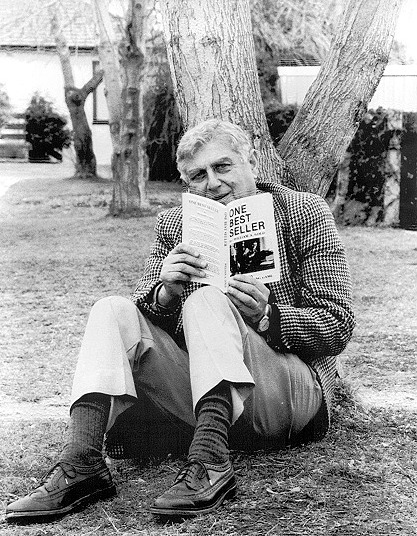
"23-7-87. Mr. Bill Gold, the world's greatest unpublished author, with his own published book, "One Best Seller." No one wants the book." (Getty Images)

"23-7-87. I'm broke, give me ten dollars for two books. This was Mr. Bill Gold as he makes dinner in his small flat in Queanbeyan. He is the world's greatest unpublished author." (Getty Images)

The Montreal Gazette - Feb 9, 1979

Posted By: Alex - Tue Feb 05, 2019 -
Comments (2)
Category: Literature, Books, World Records, 1970s
The man who stole 15,000 library books
Over the course of a decade, from around 1965 to 1975, Joseph Feldman managed to steal 15,000 books from the New York Public Library. He was caught when firemen entered his Greenwich Village apartment while responding to an alarm in his building and discovered all the books, piled up everywhere. When asked why he had taken them all, Feldman responded, “I like to read.”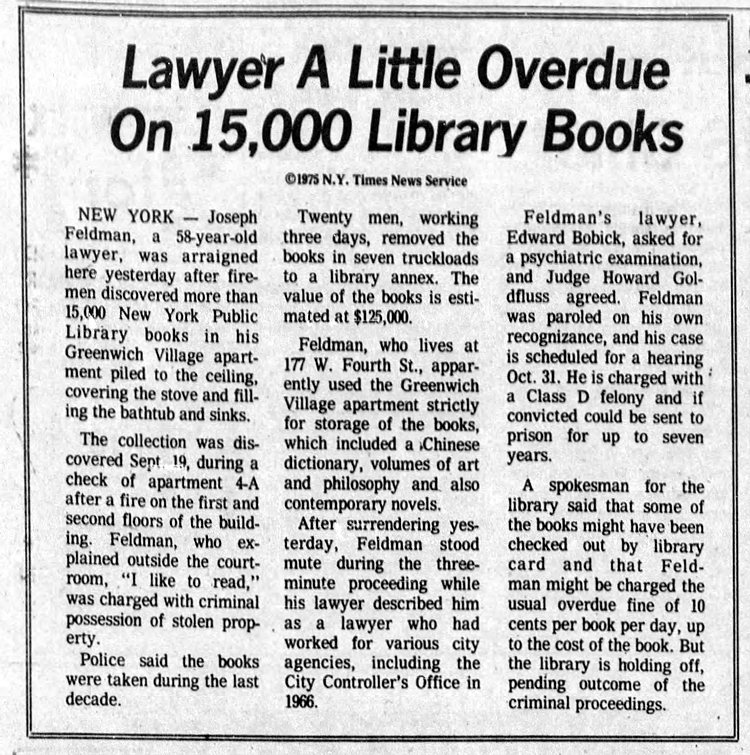
Arizona Daily Star - Sep 27, 1975
In the 21st century, playwright Erika Mijlin was inspired to write a play, Feldman and the Infinite, about the incident. It was first performed in 2008. Her description of it:
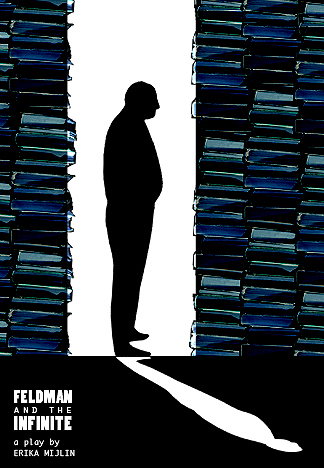
And below, a video clip of the performance.
Posted By: Alex - Thu Jan 31, 2019 -
Comments (2)
Category: Crime, Books, Libraries, Collectors, 1970s
Spanish for the California farmer
First published in 1981. It included translations for phrases a farmer might need to communicate with his workers, such as, “Clean up your camp. You live like a f**king pig.”One of the authors noted: “This is a practical book. This is not a grammar book. If you want to have beautiful Spanish, you can get your grammar books and go to school. If you want to be practical in a farm case, you have to know the slang. People use the language.”
The book is available on Amazon, though listed as “Out of Print — Limited Availability.”

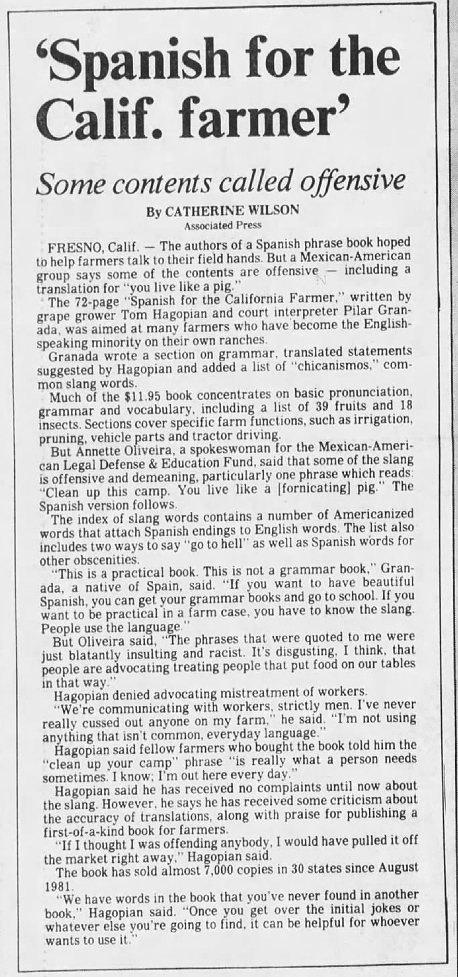
Wilmington Morning News - Jan 9, 1983
Posted By: Alex - Mon Jan 28, 2019 -
Comments (7)
Category: Languages, Books, 1980s
Cooking with Scraps
Good idea, or a kind of "stone soup" scheme? I add stones and water, you dump in all the veggies and meat. Now it tastes great!
Posted By: Paul - Sun Jan 06, 2019 -
Comments (2)
Category: Food, Frauds, Cons and Scams, Books

| Who We Are |
|---|
| Alex Boese Alex is the creator and curator of the Museum of Hoaxes. He's also the author of various weird, non-fiction, science-themed books such as Elephants on Acid and Psychedelic Apes. Paul Di Filippo Paul has been paid to put weird ideas into fictional form for over thirty years, in his career as a noted science fiction writer. He has recently begun blogging on many curious topics with three fellow writers at The Inferior 4+1. Contact Us |




